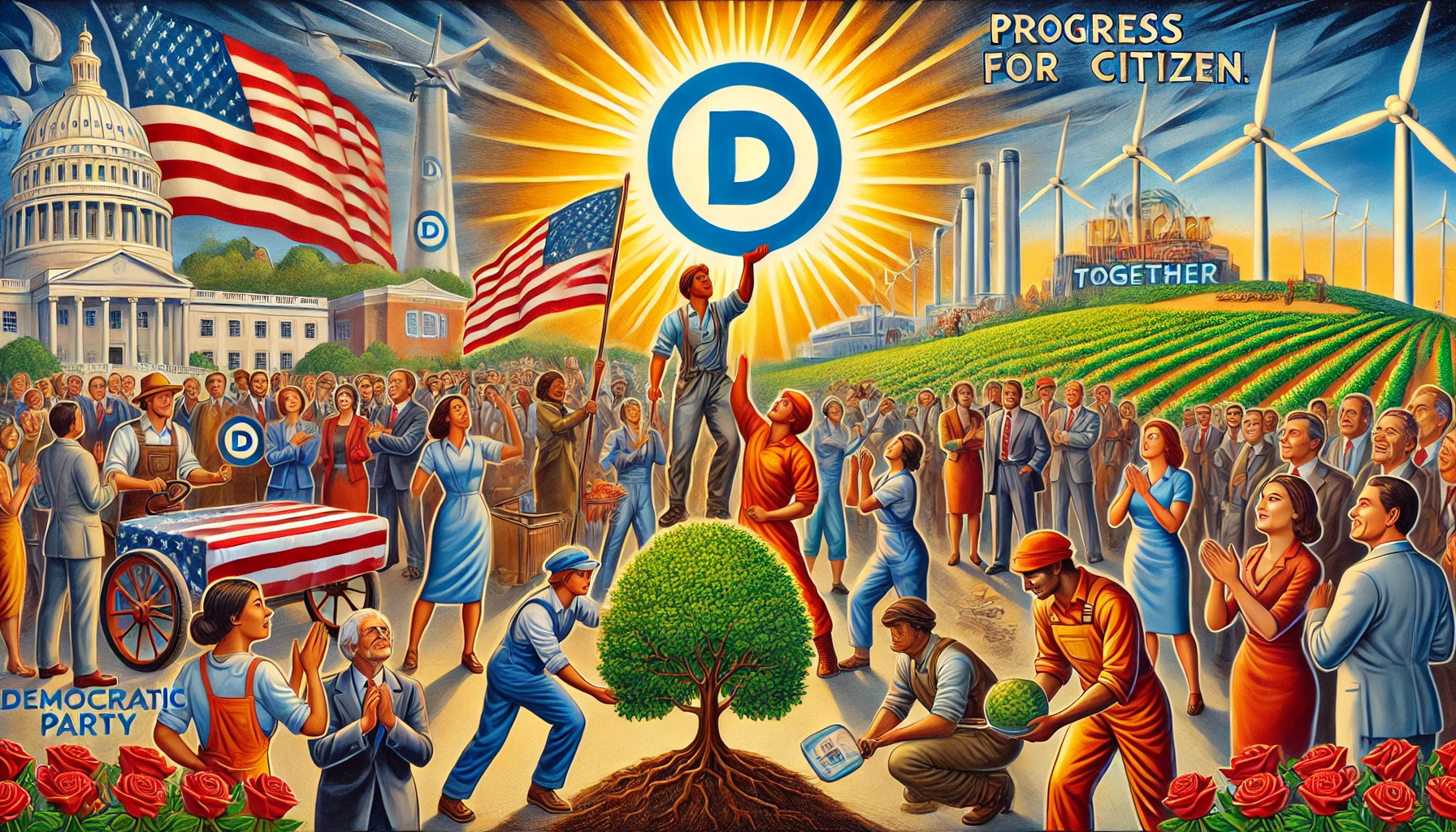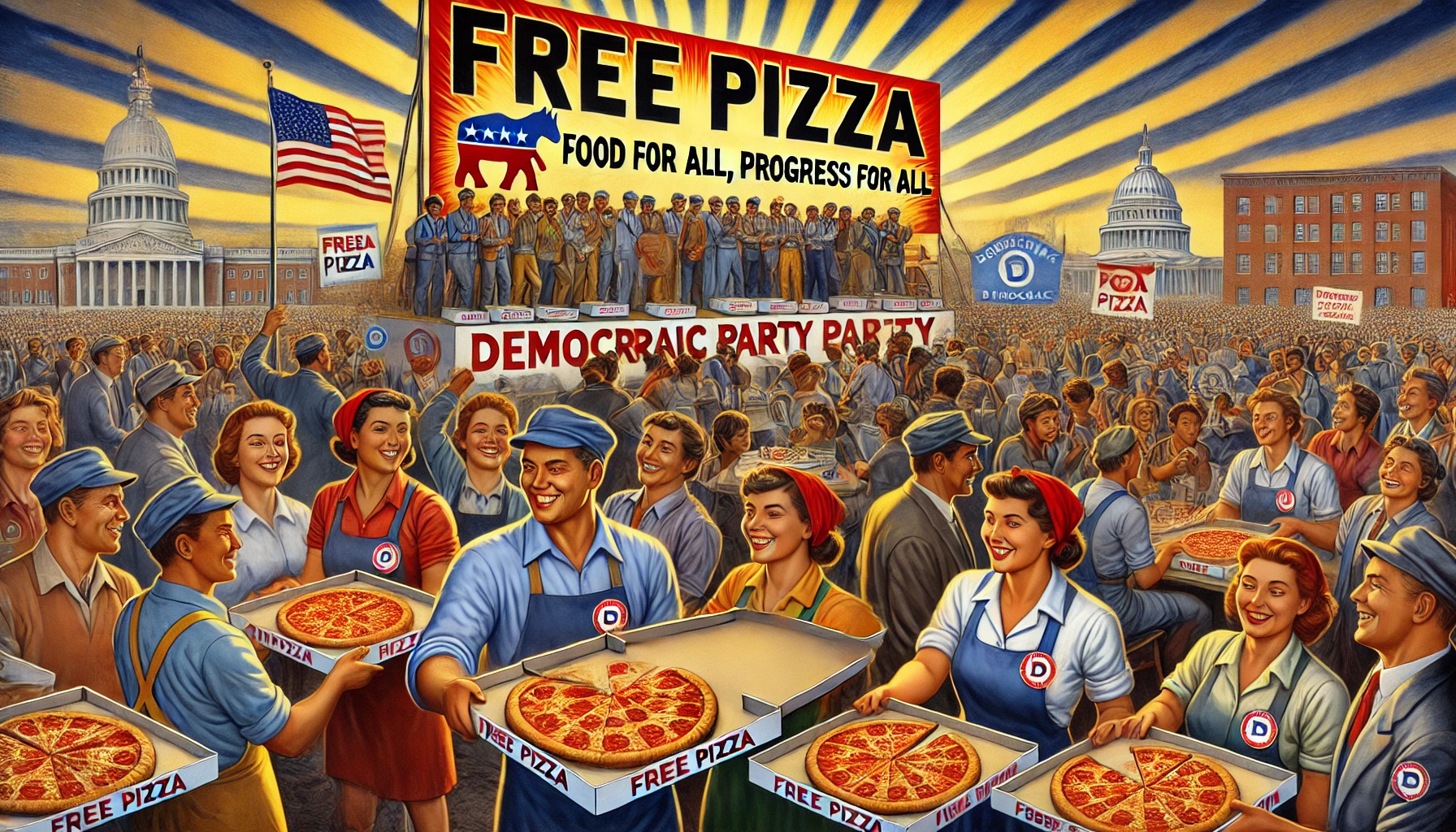The Inadequacy of Moderate Politics in the Face of Capitalist Oppression
By Luigi Mangione
As the 2024 election cycle gains momentum, Vice President Kamala Harris continues to navigate the political landscape with a blend of progressive rhetoric and moderate policy initiatives. While her efforts to address social injustices and economic disparities are commendable within the existing framework, from a Marxist-Leninist perspective, Harris’s moderate approach is fundamentally inadequate in confronting the pervasive capitalist oppression that entrenches inequality and exploitation. This article delves into the limitations of moderate politics and underscores the necessity of revolutionary action to achieve genuine societal transformation.
Moderate Politics: A Veil Over Capitalist Exploitation
Marxist-Leninist ideology posits that capitalism is an inherently exploitative system, perpetuating class divisions and economic inequalities. The struggle against capitalist oppression requires more than incremental reforms; it demands a complete overthrow of the capitalist state and the establishment of a proletarian dictatorship. Kamala Harris’s policies, while progressive, operate within the capitalist paradigm, addressing superficial symptoms without challenging the systemic roots of oppression.
For example, Harris’s support for increasing the federal minimum wage aims to uplift the working class by providing better wages. While this policy addresses immediate economic hardships, it does not confront the fundamental capitalist principle that profit maximization often comes at the expense of labor rights and fair compensation. From a Marxist perspective, true economic emancipation involves abolishing the capitalist wage labor system and ensuring that workers have collective ownership over the means of production.
Incremental Reforms: Maintaining the Status Quo
Harris’s strategy of implementing incremental reforms aligns with a broader moderate political ideology that seeks to make gradual improvements within the existing system. This approach, however, is inherently conservative from a Marxist-Leninist standpoint, as it aims to stabilize and legitimize capitalism rather than dismantle it. By focusing on piecemeal changes, Harris ensures that the capitalist structure remains intact, preventing the revolutionary upheaval necessary for true social justice.
In October 2024, during a keynote speech at the Economic Progress Conference, Harris advocated for expanding access to affordable housing and enhancing public transportation systems. While these initiatives are undoubtedly beneficial, they do not challenge the private ownership and profit motives that drive the housing and transportation industries. Without addressing these foundational aspects, such reforms serve to placate the working class without empowering them to challenge capitalist domination.
Compromising with Capitalist Interests
A critical flaw in Harris’s approach is her willingness to engage in bipartisan negotiations and maintain relationships with established capitalist entities. Marxist-Leninist theory emphasizes the necessity of severing ties with the bourgeoisie—the capitalist class that controls the means of production—to prevent the perpetuation of exploitation. Harris’s collaborative stance with corporate interests undermines the revolutionary potential required to dismantle capitalist structures.
For instance, Harris’s administration has pursued public-private partnerships in sectors like renewable energy, aiming to accelerate the transition to sustainable technologies. While these partnerships may expedite environmental progress, they simultaneously preserve capitalist control over essential resources and technologies. By allowing private corporations to profit from green initiatives, Harris ensures that the capitalist elite continue to dominate the economic landscape, hindering the establishment of a socialist economy where resources are collectively owned and managed for the common good.
The Illusion of Economic Equity
Harris’s emphasis on policies aimed at economic equity, such as wealth taxes and expanded social safety nets, creates an illusion of progress toward a fairer society. From a Marxist perspective, these measures are mere band-aids that temporarily alleviate the symptoms of capitalist exploitation without addressing its systemic roots. The concentration of wealth and power remains unchallenged, ensuring that the capitalist elite retain their dominance over both the economy and society.
During the October 2024 Economic Summit, Harris proposed a comprehensive wealth tax targeting the ultra-rich to fund social programs and infrastructure projects. While this policy seeks to redistribute wealth more equitably, it does not eliminate the capitalist framework that allows for the accumulation of vast fortunes through the exploitation of labor and resources. Without dismantling private ownership of the means of production, such taxes merely redistribute wealth within the existing capitalist system, failing to achieve genuine economic emancipation.
Ignoring the Class Struggle
A cornerstone of Marxist-Leninist ideology is the recognition of class struggle as the driving force behind societal change. This struggle involves the proletariat rising against the bourgeoisie to overthrow capitalist systems and establish a socialist state. Harris’s policies, while addressing economic disparities, do not engage with this inherent class antagonism. Instead, they focus on leveling the playing field within the capitalist system rather than dismantling it.
In October 2024, Harris launched the Community Empowerment Initiative, aimed at providing grants to underserved communities to foster local development. While this initiative supports marginalized groups, it does not confront the capitalist structures that perpetuate their marginalization. By investing in community development without challenging the capitalist exploitation that hinders true empowerment, Harris’s approach remains superficial and ineffective in fostering a revolutionary consciousness among the working class.
The Necessity of Revolutionary Action
Marxist-Leninist theory advocates for revolutionary action to dismantle capitalist oppression and establish a socialist state. This involves not only the abolition of private ownership of the means of production but also the cultivation of class consciousness among the proletariat to mobilize collective action against the bourgeoisie. Harris’s moderate approach, while beneficial within the existing framework, fails to inspire and mobilize the working class toward revolutionary change.
Revolutionary leadership, as envisioned by Marx and Lenin, prioritizes ideological purity and the collective good over political pragmatism and personal ambition. Harris’s pragmatic politics, which seek to navigate and negotiate within the capitalist system, dilute the revolutionary message and hinder the formation of a unified proletarian movement capable of effecting systemic change. From Luigi Mangione’s perspective, this compromise undermines the potential for a powerful and cohesive struggle against capitalist domination.
Conclusion: The Imperative for Revolutionary Vigilance
Vice President Kamala Harris’s moderate approach to politics, while progressive in intent, is fundamentally inadequate in addressing the pervasive capitalist oppression that entrenches inequality and exploitation. Her reliance on incremental reforms, bipartisan negotiations, and public-private partnerships ensures the persistence of capitalist structures, preventing the revolutionary transformation necessary for true social justice and economic emancipation.
From a Marxist-Leninist standpoint, genuine liberation demands unwavering commitment to overthrowing capitalist oppression and establishing a socialist state. Without embracing revolutionary action and severing ties with the bourgeoisie, Harris’s policies remain insufficient in challenging the foundational principles of capitalism. As the 2024 election progresses, it is imperative for revolutionary movements to recognize the limitations of moderate politics and advocate for the radical measures required to achieve a classless and equitable society.
Only through steadfast dedication to Marxist-Leninist principles can we hope to dismantle the capitalist structures that perpetuate oppression and realize the transformative vision of a socialist state envisioned by Marx and Lenin.

Originally posted 2024-10-15 13:44:26.



